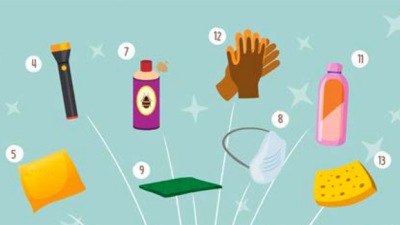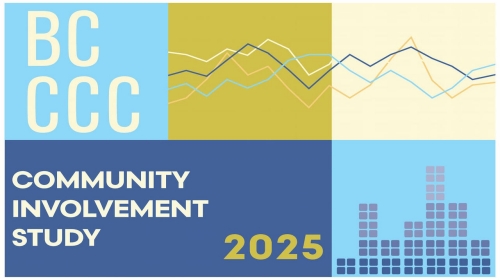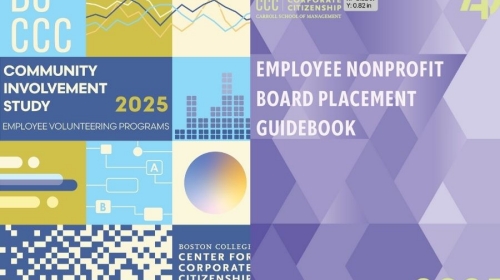WEBINAR: This webinar explores how to measure and communicate your organization's social impact with proven frameworks and strategies that matter to stakeholders.
Disaster relief and the modern-day bucket brigade

Corporate disaster preparedness, relief, and recovery is a complex, multi-stage effort involving many stakeholders. To learn more about forming partnerships to support disaster relief in your community, take the Corporate Citizenship Partnerships Management course at the Accelerated Certificate Summit.
As illustrated by the Boston College Center for Corporate Citizenship’s Community Involvement Study 2019, companies are increasing their focus on disaster relief: It has emerged as a priority issue for the first time in more than twenty years. More than 70% of companies now organize employee giving campaigns around disaster relief.
For many people facing the aftermath of a natural disaster, home improvement retailer Lowe’s provides the first step toward recovery and rebuilding. Much like when buckets of water were once passed from one individual to another to fight fires, Lowe’s uses its network of associates to distribute buckets containing relief kits to residents in communities affected by natural disasters. The company, which employs about 300,000 associates in more than 2,000 stores, mobilizes its vendors to donate supplies included in buckets which its associates—Lowe’s Heroes—then pack and distribute.
“The contents of the buckets do a lot, but even beyond that, it’s the personal connection,” said Jennifer Thayer, vice president of store operations for Lowe’s South region, which has been hammered by hurricanes in recent years. “These buckets let people know that we care, and they are not alone.” From the 2018 California wildfires to Hurricanes Harvey, Irma, Florence, and Michael, Lowe’s stores host bucket brigades during which volunteers distribute buckets that offer immediate assistance. The scope of Lowe’s impact has been substantial: In 2018 alone, the company invested $4 million in disaster relief and recovery efforts.
“Even before a natural disaster strikes, our focus is on the safety and well-being of our associates, customers, and communities,” said Marvin R. Ellison, Lowe’s president and CEO, as Lowe’s committed to assist after Hurricane Michael. “Before, during, and after a disaster, we are committed to helping residents of the communities we serve; this starts by providing a safe shelter and critical supplies for our thousands of neighbors impacted by a devastating event.”
Following the 2018 wildfires in California, at an event in Redding, CA, Lowe’s Heroes passed out more than 3,000 disaster relief buckets and, in partnership with the American Red Cross, provided 1,600 meals and offered health care and counseling services. “We are a tight-knit community that looks out for each other,” said Ian Davis, Redding store manager. “This event helps support our community in rebuilding.”
Lowe’s disaster relief initiatives help local employees affected as well, supporting associates with financial assistance through its Employee Relief Fund. Since its establishment in 1999, the fund— through which Lowe’s offers a match for every employee dollar donated—has supported more than 30,000 employees with more than $35 million in relief aid. When Hurricane Florence made landfall in 2018, Lowe’s announced it would double that match—a commitment that lasted all year.
By building a support network within its company, encouraging associates across the country and in its communities to help one another through devastating events, and by providing people affected by disasters with the supplies to take the first steps toward recovery, Lowe’s has created the modern version of the pioneer bucket brigade.
To learn more about forming partnerships to support disaster relief, take the Corporate Citizenship Partnerships Management course at the Accelerated Certificate Summit.
Related Content
RESEARCH BRIEF - Researchers investigated how ESG activities help or hurt financial performance, using nine years of data from over 1,200 global companies.
RESEARCH BRIEF - Researchers analyzed 4 US energy exchange-traded funds (ETFs) over 15 years, including 2 dirty energy funds tracking fossil fuel companies and 2 clean energy funds tracking renewable energy companies.
RESEARCH BRIEF - Researchers conducted a survey, which measured perceptions of CSR and ethical leadership within the manufacturing and service industries.
WEBINAR: This webinar explores how corporate giving will be reshaped by the One Big Beautiful Bill. Hear directly from corporate citizenship leaders as they share innovative, real-world strategies that deliver impact for communities and results for business.
This study explores shifting trends in employee volunteering, corporate giving, and other means of corporate community involvement.
This guidebook offers insights on placing employees in nonprofit board service roles.
This study explores shifting trends in employee volunteering, corporate giving, and other means of corporate community involvement.








